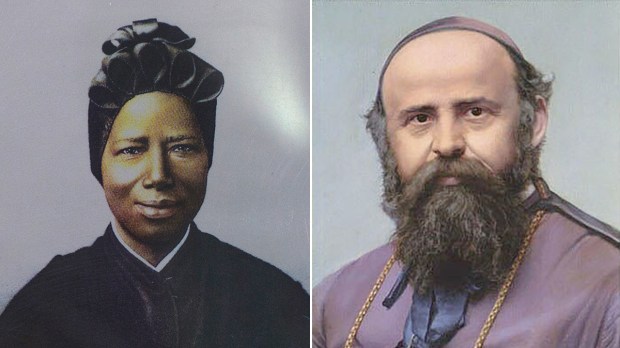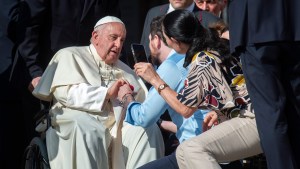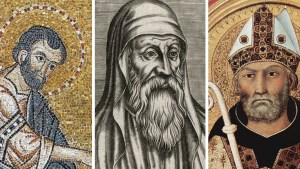Last month, it was reported that as many as 25m people in Sudan face food shortages, with over 750,000 at risk of famine. Already in November 2023 it was estimated that 40% of pregnant women and breast-feeding mothers were near to starving.
At the end of 2023, more than 9 million people were displaced across the country. More than half of the displaced were under the age of 18; some 25% of them had not reached the age of five. Since then, another million Sudanese have been displaced; the pre-war population was only 48 million, meaning nearly one in four people are refugees.
Unbelievable violence
The bishops of Sudan and South Sudan (which is the world’s most recently established sovereign state, having gained independence on July 9, 2011) appealed for an end to the catastrophe earlier this month, at the conclusion of their assembly: People are “shocked, traumatized, and disbelieving about the level of violence and hatred.”
Sudan has only a small Christian minority; it is mostly Sunni Muslim. It has one diocese, one archdiocese, and a Syrian patriarchate for both it and South Sudan. (South Sudan is about 60% Christian).
Omer Marouf, program manager for Catholic Relief Services in Sudan, noted last month how the internally displaced people and the shortage of humanitarian assistance just create a vicious circle.
Not even a clue that peace could come ….
In such a situation, faithful looking on from the outside feel powerless. Those in Sudan, even more so, as the bishops lamented: There is “not even a clue” as to how to get to a kind of dialogue that could give a “light of peace” and “bring hope for the Sudanese.”
Aleteia thus invites the faithful to turn with us to two powerful saints, who both have a unique love for Sudan.
1
Josephine Bakhita
Josephine Bakhita, already much loved around the world, is a saint of hope and the patron of Sudan.
After meeting Christ, she discovered “hope,”Benedict XVI reflected — no longer the modest hope of finding masters who would be less cruel, but the great hope: “I am definitively loved and whatever happens to me — I am awaited by this Love. And so my life is good.”
Bakhita was born in the village of Olgossa, in what is now referred to as Sudan around the year 1869. She was taken by slave traders when she was around 7 years old, in 1877, and remained enslaved for many years until she was “bought” by an Italian slave master.
Her Italian master left Sudan in 1885, when Bakhita was 16 years old. She remained in Italy for the rest of her life, dying when she was 77 years old as a Canossian Sister.
She remains the only native saint from Sudan to be officially canonized by the Catholic Church and is seen as the patron of both Sudan and South Sudan.
2
Daniel Comboni
St. Daniel Comboni is a name that is familiar, but perhaps many are not familiar with his story. He was born in Italy on March 15, 1831. He was the fourth of eight children, but the only one to survive, so he was naturally very close to his parents. Studying in Verona, Daniel found his priestly vocation and a missionary call.
He was ordained in 1854, and three years later, left for Africa. After a four-month journey, he reached Khartoum, capital of Sudan (and one of the areas now facing an emergency food situation).
Despite the tremendous difficulties faced by the young missionary, he was firm in his resolve, and through prayer, summed up his missionary project with a phrase: “Save Africa through Africa.”
Comboni traveled across Europe trying to gain support for Africa, appealing to royals and clerics alike. He founded, in 1867 and 1872 respectively, two missionary Institutes of men and of women, which became known as the Comboni Missionaries and the Comboni Missionary Sisters (Verona Fathers and Sisters).
He participated in Vatican Council I.
A biography at the Vatican notes:
In 1880, with unflagging determination, Bishop Comboni travels to Africa for the eighth and last time, to stand alongside his missionaries: intent, also, on continuing the struggle against the pernicious slave trade, and on consolidating the missionary activity carried out by Africans themselves.
(Consider that St. Josephine was sold into slavery just three years before this final trip of his).
On October 10, 1881, just 50 years old, “marked by the Cross which, like a faithful and loving bride, has never let him, he dies in Khartoum, among his people.”
His prayers brought a miraculous healing to a Muslim mom
The second miracle attributed to his intercession, which led to his canonization, was recognized December 20, 2003: It was the cure of a Muslim mother from Sudan.
The miracle happened in 1997: The mother had delivered her fifth child, via C-section, and was hemorrhaging despite two surgeries to try to stop the bleeding. Transfusions weren’t working. She was at a hospital run by the Comboni Missionaries. A religious sister recounts how, had the mother been a Catholic, she would have called a priest to anoint her, but the young patient was Muslim. Nevertheless, as the situation continued to worsen, and overcome at the prospect of a young mother leaving behind five young children, the nun had an idea.
She couldn’t invite the young mother to turn to the Sacred Heart, but she could mention Daniel Comboni. The nun turned to him first herself: “She is a Sudanese woman, from your land, a Muslim. You did so much good for them. Didn’t you love them so much? Don’t they have a special place in your heart? Save her. Don’t let her die!”
The young patient, with her own mother at the foot of her bed, agreed to having a picture of Comboni placed at her pillow, recognizing his name when the nun mentioned him, as the one who had “created all those schools in Khartoum.” When the husband and one of the older children came in later, he, asked: “Sister, you too pray to your God so that the mother of this child isn’t lost!” When the nun told him of the intercession of Comboni, he agreed, already knowing who the saint was.
While doctors didn’t expect the mother to live through the night, they found her the next morning not only alive, but getting better. Within a few short days, she was released from hospital, entirely back to health.
3
Let us pray …
In the light of these beautiful testimonies, and in the face of so much suffering in Sudan, we pray:
St. Josephine Bakhita, pray for peace in Sudan.
St. Daniel Comboni, pray for peace in Sudan.
All saints and holy men and women of Africa, pray for peace in Sudan.
Mary, Queen of Peace, pray for peace in Sudan.
Sacred Heart of Jesus, have mercy.





